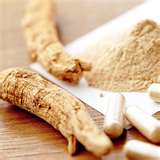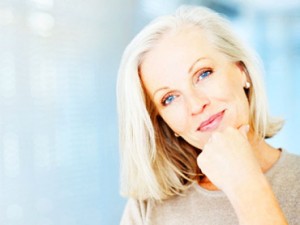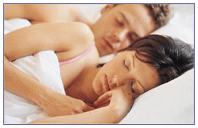 What is it about ginger that makes it such a versatile root?
What is it about ginger that makes it such a versatile root?
This underground stem is acrid and pungent and yet it treats an upset stomach, diarrhea, nausea and a laundry list of other ailments.
Here are a few in alphabethical order: altitude sickness, arthritis, common cold, colic, adjunct therapy during chemotherapy, digestive aid,fatigue, flu, headaches, heart conditions, inflammation, motion sickness, menstrual cramps ok…. that is half the alphabet and quite enough.
What most people don’t know about ginger (zingiber officinale) is the secret in this Chinese herb, this medicinal root, is all about the dosage.
Whether you are drinking ginger tea or taking ginger supplements in capsules or in extracts, tinctures, and packets of concentrated extracts, you’ve got to consider the two “D’s” (Dosage and Duration). Another important consideration is potency of the prouduct your using, because the volatile oils, gingerols and shogaols are the beneficial components. Consider buying only full spectrum herbal extracts because ginger root also contains sulfides, polyphenolics, carotenoids, coumarins, saponins, plant sterols, curcumins, and phthalides all of which contribute to gingers effectiveness.
Dosage matters!
Duration of use also matters.
Ginger root has been heavily researched since its origins are steeped in Chinese medicine, Auyervedic Medicine and even Arabic medicine. Ginger root has been found to help reduce the risks associated with heart disease because it is a natural blood thinner. This can be helpful in treating heart disease, where blood vessels can become blocked and lead to heart attack or stroke. Certainly more studies are needed.
Common Dosage Guidelines:
For pregnancy related nausea and vomiting human studies suggests that 1g daily of ginger may be effective for nausea and vomiting in pregnant women when used for short periods (no longer than 4 days). Several studies have found that ginger is better than placebo in relieving morning sickness.
Research is mixed as to whether ginger can help reduce nausea and vomiting following surgery. Two studies found that 1g of ginger root before surgery reduced nausea as well as a leading medication. In one of these studies, women who received ginger also needed fewer medications for nausea after surgery.
Ginger extract has long been used in Traditional Chinese medical practices to warm the interior particular helpful for digestion. Ginger is considered a warming herb in Chinese herbal medicine and for this reason it is particularly useful for those who have any of the above conditions with an overall cold constitution.
Among all the uses, particulary useful is gingers abilitiy to lower cholesterol and help prevent blood from clotting.
Pediatric Don’ t give ginger to children under 2. Ginger may be used by children over 2 years of age to treat nausea, stomach cramping, and headaches.
Standardized dose: Take 75 – 2,000 mg in divided doses with food, standardized to contain 4% volatile oils or 5% total pungent compounds including 6-gingerol or 6-shogaol.
For nausea, gas, or indigestion: 2 – 4 grams of fresh root daily (0.25 – 1.0 g of powdered root) or 1.5 – 3.0 mL (30 – 90 drops) liquid extract daily.
To prevent vomiting, take 1 gram of powdered ginger (1/2 tsp) or its equivalent, every 4 hours as needed (not to exceed 4 doses daily), or 2 ginger capsules (1 gram), 3 times daily.
You may also chew a 1/4 oz piece of fresh ginger when needed.
For pregnancy-induced vomiting, use 250 mg 4 times daily for up to 4 days.
Talk to your doctor before taking ginger if you are taking blood thinning medications.
For arthritis pain: 250 mg 4 times daily for several months.
Ask your Licensed Acupuncturist or Herbalist to help you determine the right dose. Adults In general, don’ t take more than 4g of ginger per day, including food sources. Pregnant women should not take more than 1g per day.
References:
Research Papers and References “Characterization of food antioxidants, illustrated using commercial garlic and ginger preparations” by Okezie I. Aruoma, Jeremy P.E. Spencera, Donna Warrena, Peter Jennera, John Butlerb, Barry Halliwella in Food Chemistry Volume 60, Issue 2, October 1997, Pages 149-156
Antioxidants in Food. Abstract: www.sciencedirect.com/science/article/pii/S0308814695002545 “Intake of Garlic and Its Bioactive Components” by Harunobu Amagase, Brenda L. Petesch, Hiromichi Matsuura, Shigeo Kasuga and Yoichi Itakura. Journal of Nutrition. 2001;131:955S-962S.
Abstract: http://jn.nutrition.org/content/131/3/955S.short “Traditional Indian spices and their health significance” by Kamala Krishnaswamy. Asia Pac J Clin Nutr 2008;17(S1):265-268. Full article: http://apjcn.nhri.org.tw/server/apjcn/volume17/vol17suppl.1/265-268S15-2.pdf
“Changes in Platelet Function and Susceptibility of Lipoproteins to Oxidation Associated with Administration of Aged Garlic Extract” by Steiner, M.; Lin, R. S. In Journal of Cardiovascular Pharmacology: June 1998 – Volume 31 – Issue 6 – pp 904-908. Abstract: http://journals.lww.com /cardiovascularpharm/Abstract/1998/06000
/Changes_in_Platelet_Function_and_Susceptibility_of.14.aspx “Health-promoting properties of common herbs” by Winston J Craig in American Journal of Clinical Nutrition, Vol. 70, No. 3, 491S-499S, September 1999. Abstract: http://www.ncbi.nlm.nih.gov/pubmed/10479221
Fox New Story: http://www.foxnews.com/health/2012/07/24/6-motion-sickness-remedies/#ixzz21c37OCI6



